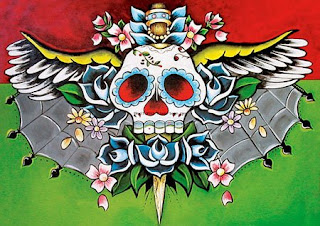
Graphic photos of the alleged thief’s corpse were splashed over the front pages of Mexican tabloids beneath headlines such as “Dead Rat” and “Military Justice.” The confessed shooter, retired general Alejandro Flores, was widely hailed as a hero for firing at the 30-year-old man who had tried to force his way into the military man’s Mexico City home. “Of course he did the right thing,” wrote Felipe Alcocer in one on-line forum on the incident. “I wish everyone would act in the same way and get rid of this anti-social scum.” Given Mexico’s widespread breakdown in security, the praise for Flores’ Feb. 5 act of self-defense is unsurprising. The conviction rate in the thousands of murders and kidnappings afflicting the nation every year is estimated to be as low as 5%. Women and children are also increasingly among those killed by criminal gangs. And the limits on the legal system’s ability to stem the tide of violent crime has produced a growing, shadowy movement for vigilante justice. In recent months, at least three new clandestine groups have promised to hunt down and murder criminals to help restore order. As in the killing of the alleged thief by Flores, such groups have been cheered on in public forums. “My sincerest congratulations to these brave men with their courage and determination,” wrote a reader of Mexican newspaper Milenio. “God help them with their noble cause.”
It is too early to say whether these self-proclaimed avengers will become a significant force in Mexico’s battle with crime. Some of them may simply be angry citizens sending out messages not backed by any action. Others could be fronts for drug gangs, who want to present themselves as public guardians while running their own criminal rackets. But whomever is really behind these particular groups, the growing demand for justice by any means necessary raises concerns about the security situation in Mexico if the government remains unable to suppress the crime wave.The most widely publicized vigilante campaign has emerged across the Texas border in Ciudad Juarez, which has become Mexico’s deadliest city with 1,600 murders last year. A self-styled Juarez Citizens’ Command sent an e-mail to local media in January saying it will give the government until July 5 to restore order or execute one criminal a day. Signed by “Comandante Abraham,” the group claims it is financed by local businessmen, and includes university students, entrepreneurs and professionals in its ranks. It offers to cooperate with military intelligence and says it supports the government, but argues that the elected politicians have failed.A second shadowy group, called the Popular Anti-Drugs Army, materialized among farming towns in the southern state of Guerrero in November. Displaying blankets with written messages on bridges and buildings, the group claims to be made up of family men who have come to together to force drug dealers off the street. “We invite the people to join our struggle and defend our children who are the future of Mexico,” it said on one of the blankets. Unlike the Juarez group, the Guerrero “Army” has been linked to several killings, including the decapitation of an alleged drug dealer in December. Local press allege the group is commanded by a rancher whose children were targeted by the gangs.Sociologist Rene Jimenez notes that vigilante justice has already become a reality in several parts of the country. “The state is failing to keep control in certain areas so people take justice into their own hands,” he said. “This vigilantism shows that the conflict is entering a new phase. Violence will breed more violence.”
There are certainly some unfortunate precedents: Self-proclaimed anti-gang vigilantes became a key part of the civil war in Colombia, where they morphed into paramilitary armies with thousands of members. These groups fought leftist guerrillas and allied with the government to bring down major drug traffickers such as the notorious Pablo Escobar. Many of the paramilitary leaders later confessed they had funded their own activities by dealing drugs, but claimed they virtually stopped anti-social crime in areas under their control. Gustavo Duncan, who authored a book on the Colombian paramilitaries, says similar organizations could emerge in Mexico amid the breakdown in state authority. “While Mexico may not ever get as bad as Colombia, some of the factors are very similar,” Duncan notes. “When the state cannot keep control in certain areas, it leaves a vacuum for these type of organizations to step in and in many ways they become the state.”

 07:17
07:17
 Reporter
Reporter

 Posted in:
Posted in: 


0 comments:
Post a Comment